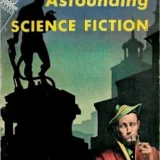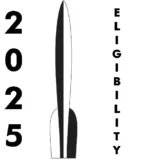Bonjour / Hola / Ciao: Selling foreign language rights (conclusion)
In parts 25 and 26, I began another mini-series on your options for re-selling your stories after they’ve been published for the first time. If you haven’t already, you really, really need to go back and do your homework by rereading these earlier posts:
- Part 4 and part 5 on understanding the licensing of rights for fiction;
- Part 17 on how to protect those rights in short fiction contracts; and,
- Part 18 on ensuring those rights revert to you.
This week, I’ll complete the discussion I started last week on submitting to foreign language magazines by reviewing some possible problems that you might encounter. I’ll also relate a chain of wonderful experiences that resulted from the sale of a single story to one French market. I’ll finish up this topic of selling reprints by reviewing how to sell audio rights.
Some Caveats on Foreign Language Markets: Payment
Payment is generally in USD or in Euros for most of the markets on the FML, and many of the paying markets now provide a PayPal option.
However, getting paid can be challenging. Some markets will pay only in local currency or via bank transfer, both of which involve banking fees. One large markets (now dead) used to require authors to submit an invoice to their payables department before they’d issue a cheque, which was drawn on the Bank of Athens. Cheques drawn on a foreign bank are not easy to cash even in a large North American city. Some markets will also deduct a local income tax withholding amount from the payment.
These markets also face the same challenge in staying alive as do English language genre magazines. Many (even the paying ones) are run on a for-the-love basis, so production schedules can vary wildly, as can the time frame for receiving your payment and contributor copies.
And some will have short lifetimes. I’ve had about a dozen foreign language sales where the story was never published because the market folded. Out of those sales, I’ve had two situations where I had to involve the SFWA grievance committee to (finally) extract payment for a published story.
Some More Caveats: Response Time
These can be very long. But you can submit simultaneously to several of these markets since the rights that they purchase are specific to their language and don’t conflict with other foreign markets. In addition, most will respond to email queries regarding the status of your submission.
And Some More Caveats: Communication
Communication with the editor can also sometimes be challenging. Many of these editors have excellent written English skills, but some do not. However, in most of the latter cases, the magazine will employ a foreign language acquisition editor, so these difficulties tend to be the exception.
Language can also be a barrier to staying current with any of these markets. My Foreign Market List includes links to the web sites for most of the magazines, but these sites are generally not in English. Fortunately, I receive regular updates from many of the editors or from submitting authors regarding changes in a foreign language market, and then post these to the FML.
I also provide a list of web-based translation tools that can assist in understanding a magazine’s web site. These tools can also help in the rare occasion where you receive a reply in the language of the editor.
A word of warning: don’t ever use a translation tool to translate from English to the target foreign language and then submit that result, even if it’s only your cover letter. These tools simply aren’t that good. If you don’t believe me, try translating any sentence from English to the foreign language and then back again.
A Story of a Foreign Language Sale
In case you’re still not convinced of the value of foreign language markets or in case all my caveats above have now scared you off, I will share one of my experiences. Well, actually, it’s a chain of experiences, all resulting from a single sale.
In 2000, I sold one of my Heroka shapeshifter stories to Ténèbres, an excellent dark fantasy magazine in France. The editor, Benoît Domis, asked if I had any more Heroka stories. I sent him the two others that I’d written at that point, and he bought both of them as well.
Cool, but there’s more. Solaris, a long running and award winning Québec magazine, also publishes in French but unlike Ténèbres, it only accepts stories written in French. But I now had a French version of my Heroka stories. Benoît provided the translated versions to me, and I submitted these to Solaris, who bought two of them. (A related point: if you sell a translated story, the typical approach is that you will split the payment 50/50 with the original translator.)
Even cooler, but there’s still more. Both of the stories that appeared in Solaris made the final ballot of Canada’s Aurora Award for Best Short Fiction in French, and one of them (“Spirit Dance”) won the award. As far as I know, I’m still the only person to win the Aurora in both of Canada’s official languages.
And there’s still more. Benoît told me at the time (2000) that if he ever got his own press, he’d love to put out a collection of my fantasy stories. Which was very nice to hear, since I’d just started writing, but I never really expected anything to come of it.
Fast forward to 2010. Benoît contacts me to say that he now has his own small press (Dreampress) and that he’d like to do that collection. La Danse des Esprits (Spirit Dances) was published by Dreampress in 2011, and was nominated for not one, but two French awards, the Prix Masterton and the Prix Bob Morane.
So one award, three award nominations, and my own collection in French–all starting from a single sale to a French magazine.
Curling Up With a Good Podcast: Selling Audio Rights
Before I finish off this topic, let me mention on last market for your reprints. You can also resell your story to one of the growing number of podcast magazines. These markets provide a narrator for your story and usually make their audio magazine available online to subscribers as a podcast.
You can find these markets on Ralan’s list on his audio markets page. Your cover letter for these markets will be the same as for submitting to a reprint market. That is, you need to inform the editor of where your story was originally published.
These markets buy First Audio Rights in English (no geography dimension is involved, since they’re downloadable). You could submit to an audio market before you’ve sold the story to a first rights text market, but most audio markets prefer that you send them previously published stories. It helps their selection process if a story originally appeared in one of the top pro markets. Therefore, I treat audio magazines as reprint markets.
Next Week
That finishes my discussion on reprints and selling other types of first rights. Next week, I’ll talk about some other events that might be triggered by a sale of a story.
Next Week: Cool Stuff That Might Happen (or Not): Awards, Best of Anthologies, Movies
As always, please feel free to add comments and questions, and I’ll respond as best (and as soon as) I can.
I’ve written these posts in a very specific sequence, with each entry building on previous ones. You can read my earlier posts here.
~~~~~
PLAYING THE SHORT GAME — The Book!
I am thrilled to announce that I have now repackaged the 32 separate posts that make up this blog series into a book titled Playing the Short Game: How to Market & Sell Short Fiction. The book is completely updated and reorganized, with new material not in this blog series, plus an introduction from multi-genre, multi-award winning writer and editor, Kristine Kathryn Rusch. Here’s an extract from Kris’s intro:
Douglas Smith is the best person to write this book. … He’s one of the few people who has probably published more short fiction than I have, and in more countries, and more high-paying markets. He loves the short story as much as I do, and he’s good at writing them.
He’s just as good at the business side of the profession. He knows more about marketing short stories to other countries than I do. He understands how to manage short fiction contracts very well. He’s up-to-date on 21st century publishing practices, and he has a toughness that the best business people need.
We short story writers have needed a book like this for decades. I’m glad Doug decided to write it. Read and reread this volume. Because you’ll learn something each time you do. And take Doug’s advice. It’s spectacular.
—Kristine Kathryn Rusch
More information on the book, including full buying links for all major retailer sites, is available on my website here.
As a special offer to Amazing Stories readers, I’m offering discounts in my bookstore. Get the ebook or print edition at a discount by using the coupon codes AS-SHORT-E or AS-SHORT-P respectively at my website bookstore. Enjoy!
Doug is an award-winning Canadian writer whose fiction has appeared in twenty-five languages and thirty countries. His works include The Wolf at the End of the World, Chimerascope, and Impossibilia.









Good post.
Thanks, Tanya.